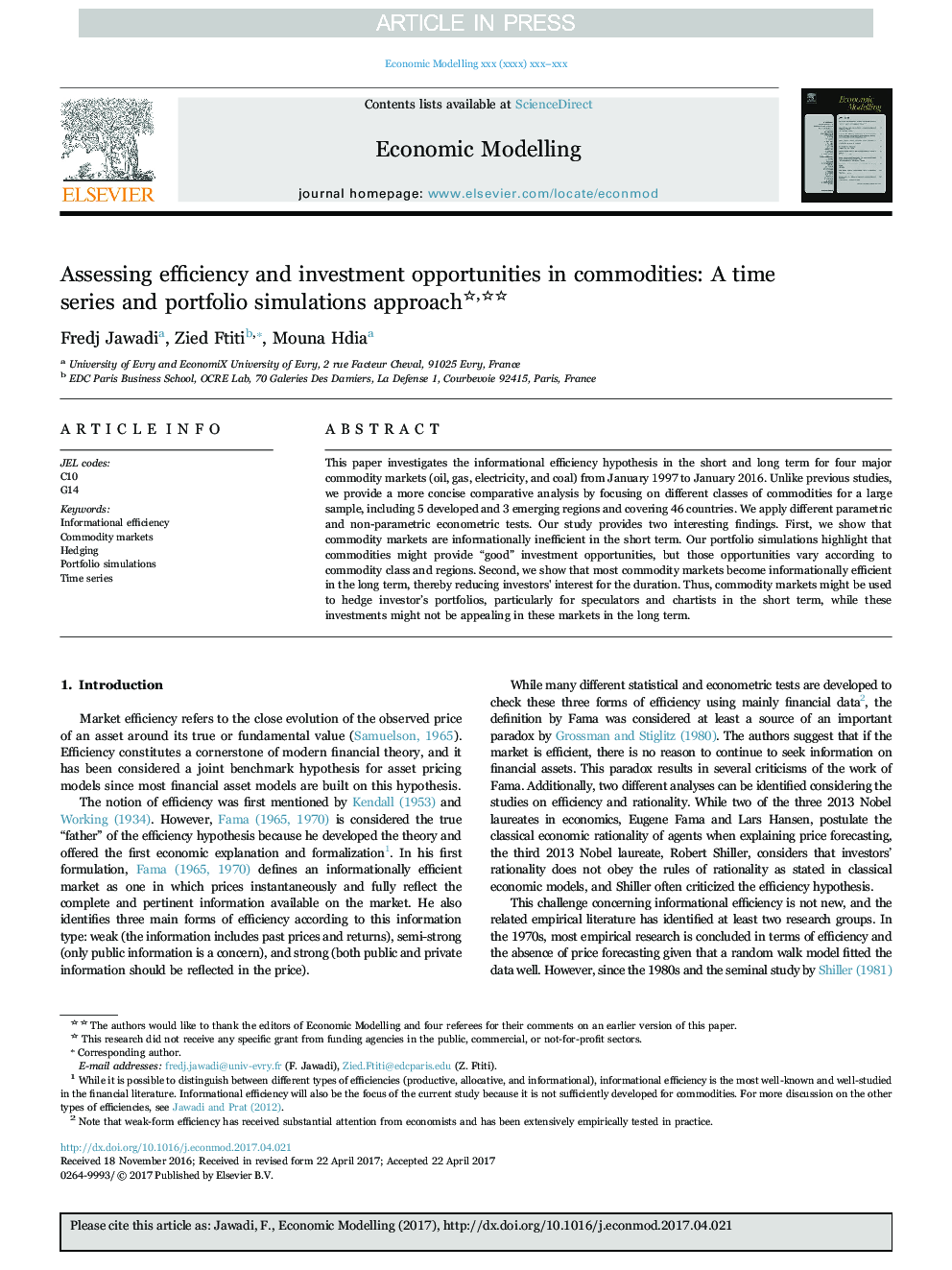| Article ID | Journal | Published Year | Pages | File Type |
|---|---|---|---|---|
| 5053175 | Economic Modelling | 2017 | 22 Pages |
Abstract
This paper investigates the informational efficiency hypothesis in the short and long term for four major commodity markets (oil, gas, electricity, and coal) from January 1997 to January 2016. Unlike previous studies, we provide a more concise comparative analysis by focusing on different classes of commodities for a large sample, including 5 developed and 3 emerging regions and covering 46 countries. We apply different parametric and non-parametric econometric tests. Our study provides two interesting findings. First, we show that commodity markets are informationally inefficient in the short term. Our portfolio simulations highlight that commodities might provide “good” investment opportunities, but those opportunities vary according to commodity class and regions. Second, we show that most commodity markets become informationally efficient in the long term, thereby reducing investors' interest for the duration. Thus, commodity markets might be used to hedge investor's portfolios, particularly for speculators and chartists in the short term, while these investments might not be appealing in these markets in the long term.
Related Topics
Social Sciences and Humanities
Economics, Econometrics and Finance
Economics and Econometrics
Authors
Fredj Jawadi, Zied Ftiti, Mouna Hdia,
